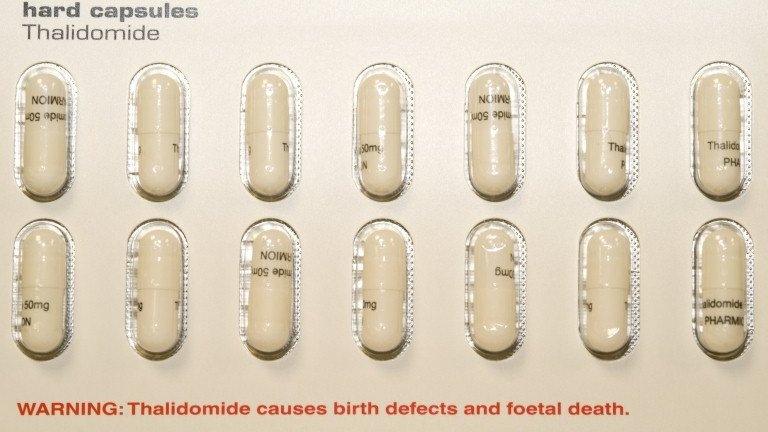Thalidomide survivors seek 'justice' with Plaid Euro MP
- Published
Plaid Cymru MEP Jill Evans has backed the fight to win compensation for Thalidomide survivors
Welsh people left disabled by the thalidomide drug scandal are being backed in their fight for compensation by Plaid Cymru MEP Jill Evans.
She joined campaigners in Brussels calling on the German government to properly compensate survivors born with deformities in the 1950s and 1960s.
The German-developed drug, withdrawn in 1961, had been prescribed to pregnant women for morning sickness or insomnia.
Ms Evans said she was backing the survivors' "fight for justice".
More than 10,000 babies worldwide were born with limb deformities and other problems linked to thalidomide before it was withdrawn by its German manufacturer Grunenthal.
The drug's UK manufacturer Distillers agreed in 1973 to pay more than £20m compensation to families affected, and in 2009 the then Labour UK government issued an apology and promised a further £20m compensation.
But campaigners want the German federal government to explain whether it had a role in curtailing a criminal trial in 1970 of nine Grunenthal directors and staff without anyone being convicted.
Survivors claim they have been denied adequate compensation as a result.
"We must maintain pressure on the German federal government to be open about what has gone on, and properly compensate thalidomide survivors," said Ms Evans.

Thalidomide fact file
Developed by German pharmaceutical company Grunenthal
Launched in Germany in October 1957 under the brand name Contergan
Introduced in the UK in April 1958 as Distaval
First marketed as a sedative, it was then given to pregnant women to combat morning sickness
More than 10,000 babies worldwide were born with deformities linked to the drug
Withdrawn by Grunenthal in 1961
There are more than 460 thalidomide survivors in the UK
Thalidomide is still used today to treat the complications of leprosy and multiple myeloma, although the World Health Organisation does not recommend its use
Sources: Grunenthal, Thalidomide Trust and World Health Organisation
- Published5 June 2014
